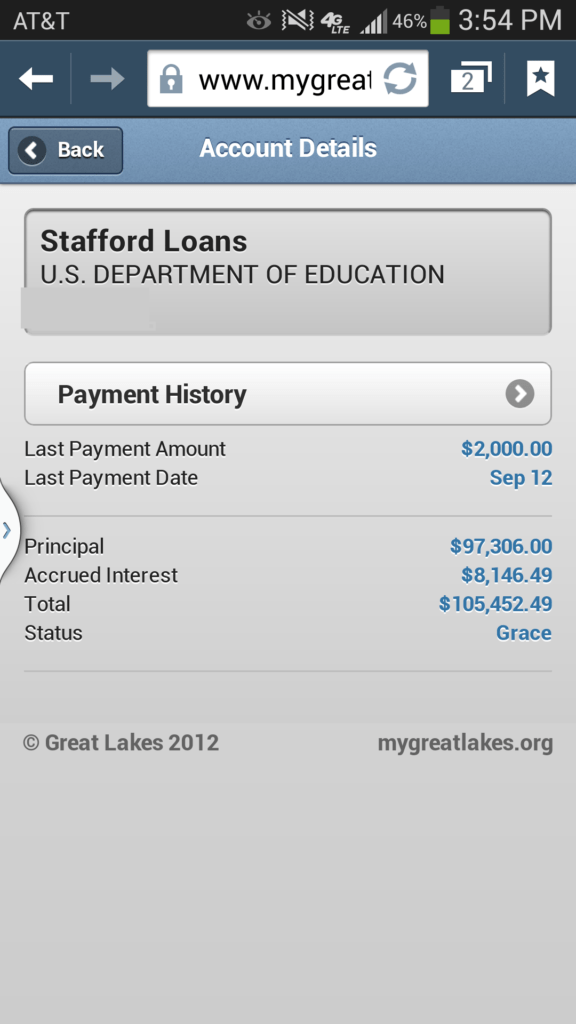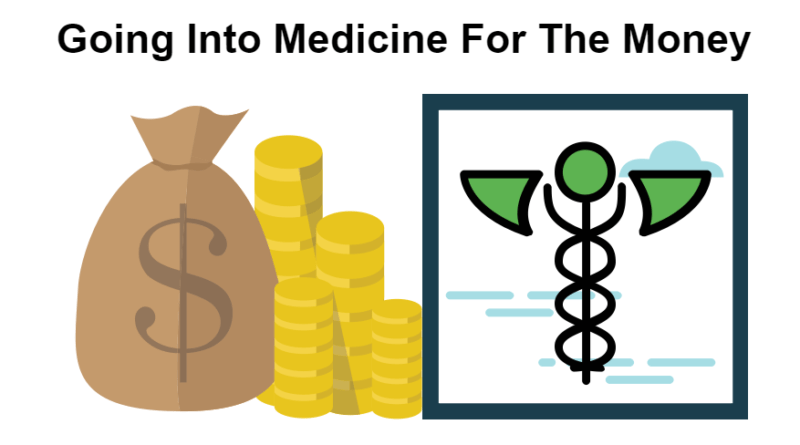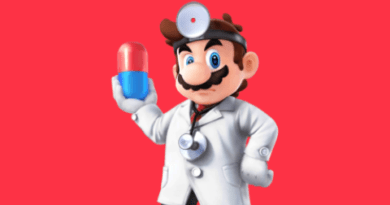Going into medicine for the money
Choosing to enter into the medical profession for a primary reason of financial compensation would be considered by many a poor decision. Publications like this one from CBS add to the plethora of posts online about how a large number of doctors would not choose to enter into the medical profession again if they could do it all over, mainly for decreased reimbursements. The financial burden to become a physician in addition to the opportunity cost and effort it takes to finish training makes becoming a physician solely for financial means not an attractive decision for most people.
Opportunity cost
Choosing to go to medical school, residency, and possibly fellowship all take time away from potential earnings. Delaying income for seven or more years also takes time away from enjoying the benefits of compounding interest in your favor. As an example, lets financially compare my friend Ryan and I at the end of my training. Ryan went to school and graduated with a STEM degree. He started out making $60,000 a year and contributed to his 401k every year. Ryan estimates that he has been saving 30% of his pay per year since graduation. I went to 4 years of medical school and 3 years of residency.
- Over the seven years I was in school and training he earned a gross pay of $420,000 while I earned a gross pay of $150,000. A difference of $270,000.
- He did not take on any additional debt during my training. I took on an additional $100,000 in debt. Most medical students take out more than twice that.
- Assuming that he had a savings rate of 30%, He would have saved $127,000 if he put the money in a checking account with 0% interest. If he put the money in an index fund that averaged 6% per year he would have $160,000 saved when I finished training thanks to compound interest.
- While compound interest is working in his favor, each day I am in training not paying off my loans I am accruing more debt.
- Ryan used his money saved to buy a house and start moving towards owning rental properties as he continues to save. At the end of residency I still rent a small apartment with no equity in a house.
- Ryan had weekends and holidays off while I had to work many of them and miss special occasions.
- The break even point for us being worth the same amount by my calculations will be about 10 years after I have entered medical school.
- Though much of my youth will be spent with negative net worth, my lifetime earning potential is much higher than his.
Is it acceptable to even say you are in medicine for the money?
When I was a senior resident I met a new intern who made it be known that he was very interested in the financial benefits of being a physician. From day one he was asking all the upper levels about how to moonlight and make extra money in residency. At first I was shocked that he was so forthcoming with his motivation to be a doctor primarily financial. He said that he wanted to do cardiology since he not only finds it interesting but wants to pick a specialty that makes a lot of money.
I asked him if he had a lot of debt that influenced his decision and he said he had none. He simply told me that he felt that if he was going to go to all the training, then he would pick one he can do every day and pays the best. As our month together went on, we continued to have many discussions about money and our outlook on life. I couldn’t help but start to think that his type of thought process may be more common than many doctors given credit for. My intern was only the first person I worked with to be so blunt about his goals.
Medical students choosing to follow the money
Reading through the AMA journal of ethics, it turns out that my intern who wanted to chase money was not alone. “Between 2007 and 2012, at least one-fourth of medical school graduates consistently reported that their level of educational debt had a strong or moderate influence on their choice of specialty [1].” The journal article also goes on to say that “Of those who chose primary care, more than 70 percent plan to sub-specialize, up from 52 percent in 1995.”
I wish that these polls would have asked another question upon entering medical school before having six figures of debt. Would you list financial compensation as a major influence in what field you are considering to enter into? I cant help but wonder how many of these responses would return positive. I know I would have said yes from the beginning since going through the same amount of training for a significant drop in pay does not sound like a wise decision.
I think I may have become one of many who followed money

I graduated residency and interviewed at both primary care jobs and hospitalist jobs. I found myself enjoying my outpatient medicine rotations but in the end decided not to become a primary care physician. Spending countless hours doing pre-authorizations, filing out DME forms, handicap parking passes, worker compensation forms, and dealing with pain seeking in clinic was just too much to do for such little pay. When I looked at the job offers and reimbursement compared to hospitalist jobs it was an easy choice.
I’m working about 60% of the days a PCP works a month and making 40% more than the job offers I was getting as a PCP. In our hospitalist group alone, there are 5 people who were previously PCP’s and have switched to hospital medicine as they feel burnt out due to poor financial compensation. I never thought of myself as someone who chose a path in medicine due to financial means but it turns out that pay was a large part of my decision not to do outpatient medicine.
Be happy with what you do
I’ve had jobs ranging from hauling hay to now being a physician. The hours and stress level are much higher as a physician but the same thing stands true for any job. You will be spending the majority of your life doing what you chose as your profession and job. Make sure that you enjoy it. Working a job that you dread going to every day is no way to spend the majority of your life. If medicine happens to be what you like and you also like to make a lot of money then more power to you.





